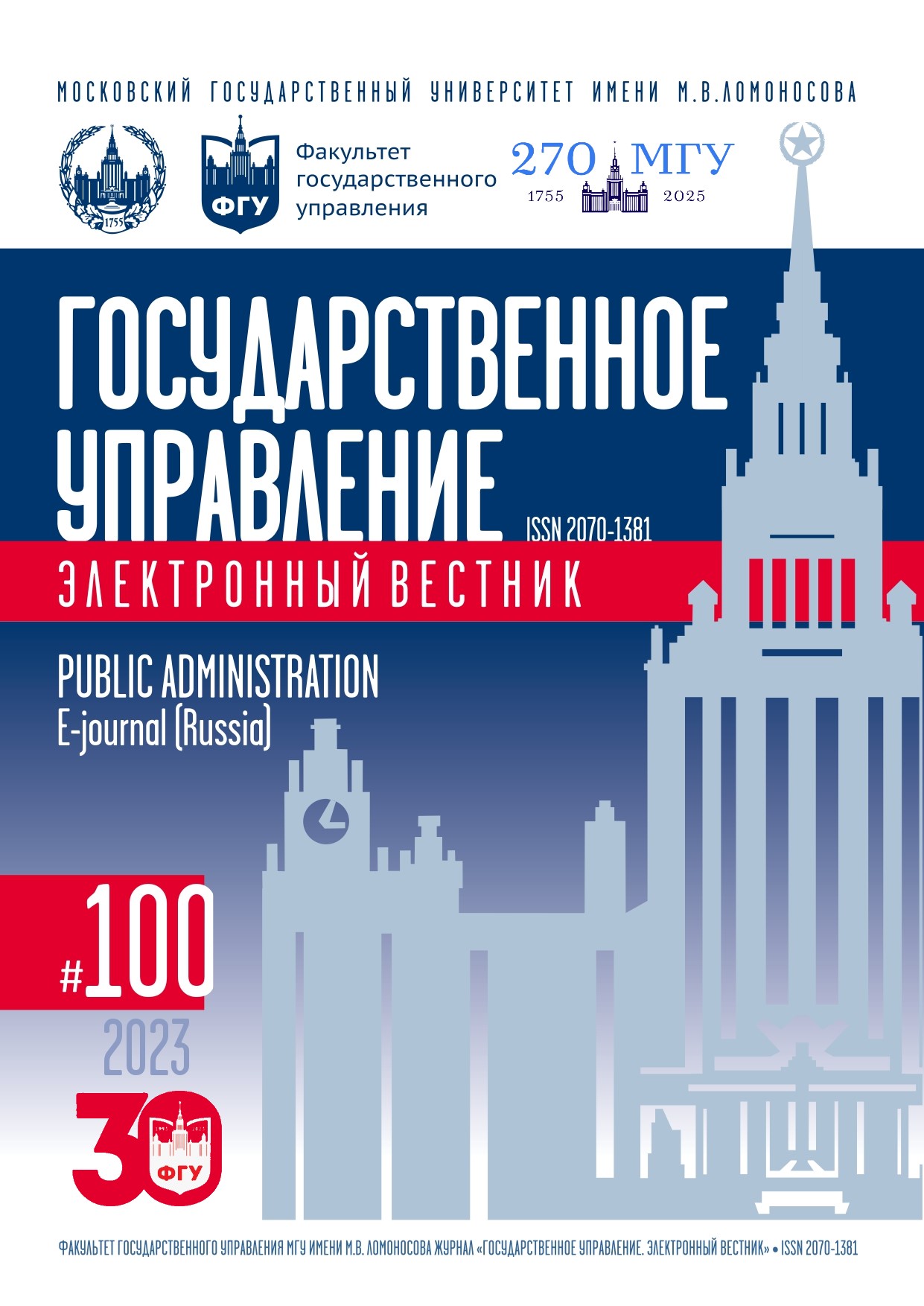Personnel Training in Russian Organizations in the Sphere of Culture and Art
Keywords:
Personnel training, organizations in the sphere of culture and art, diagnostics of educational needs of personnel, training program, active learning methodsAbstract
Along with many domestic organizations, organizations in the sphere of culture and art are interested in replenishing and updating the knowledge and skills of employees as well as their regular training. “The presence of employees who have passed advanced training and (or) professional retraining” is one of the effectiveness indicators for the federal state budgetary, autonomous institutions of culture and arts activities, and their managers’ performance. The choice of training programs for personnel engaged in the sphere of culture and art should be preceded by a diagnosis of the educational needs of employees, which allows organizing training according to their demand for the subject of educational programs, teaching methods, format and duration of classes. The questionnaire developed by us aims at diagnosing the educational needs of employees of organizations in the sphere of culture and art. It includes blocks of questions about the willingness of employees to participate in training programs, their needs for knowledge and competence development, priority teaching methods for them, their experience of participating in training events and preferred conditions for training. The conducted testing of the questionnaire showed that it is an informative, fast and convenient way to obtain information about the educational needs of respondents; it can be easily adapted for use in any organizations in the sphere of culture and art. The results allowed us to outline the areas for improving existing personnel training programs. It expanded the subject of training
programs for organizations in the sphere of culture and art’s employees, enhanced the training programs’ content to contain professional characteristics and seize the needs of potential listeners. It was also effective in conducting education process using active learning methods such as trainings, master classes and discussions. Lastly, the results ensured the practical orientation of educational programs and optimized the duration, time and format of training.
References
Бабаян И.В. Компетенции руководителей образовательных учреждений культуры: запрос на командность, ответственность и самодисциплину // Управление культурой. 2022. № 2(2). С. 21–26.
Батоврина Е.В. Управление персоналом инновационных организаций. М.: АРГАМАК-МЕДИА, 2019.
Гомбоева М.И., Спандерашвили Н.И. Социокультурные основания современных практик дополнительного профессионального образования сферы культуры и искусства // Гуманитарный вектор. 2018. Т. 13. № 3. С. 159–167. DOI: 10.21209/1996-7853-2018-13-3-159-167.
Додохян Т.М. Анализ передового опыта организации обучения персонала промышленных предприятий как инструмента повышения их инновационной активности // Организатор производства. 2021. Т. 29. № 4. С. 59–67. DOI: 10.36622/VSTU.2021.91.94.006
Капустина Н.И. Профессиональная подготовка работников сферы культуры как условие эффективности работы клубных учреждений // Культурное наследие России. 2015. № 2. С. 61–63.
Курбатов Д.П. Особенности формирования программ повышения квалификации работников сферы культуры // Материалы Всероссийской конференции студентов, аспирантов и молодых ученых, посвященной Году российского кино: в 3 ч. СПб: СПбГИКиТ, 2017. Ч. 1. С. 98–100.
Мугаева Е.В. Роль обучения персонала в повышении качества предоставляемых услуг сферы гостеприимства // Экономика и бизнес: теория и практика. 2021. Т. 7(77). С. 93–96. DOI: 10.24412/2411-0450-2021-7-93-96
Подвербных О.Е., Онисифорова Е.В. Формирование инновационного потенциала как фактора повышения конкурентоспособности работников наукоемкого предприятия. Красноярск: Сибирский государственный аэрокосмический университет, 2015.
Рудакова Н.В. Выявление образовательных потребностей и запросов на переподготовку и повышение квалификации в учреждениях культуры Иркутской области. Иркутск: ГБУ ДПО ИО Иркутский областной учебно-методический центр культуры и искусства «Байкал», 2019.
Тимофеева А.Г. Обучение и развитие персонала как условие успешной ESG-трансформации российских банков // Московский экономический журнал. 2022. № 5. С. 775–781. DOI: 10.55186/2413046X_2022_7_5_328
Штолер А.В., Штолер Н.Н., Япринцева К.Л. Проблемы взаимодействия образовательной организации и организаций-работодателей в сфере культуры: опыт исследования // Высшее образование в России. 2022. Т. 31. № 6. С. 136–151. DOI: 10.31992/0869-3617-2022-31-6-136-151
Barragán-Ocaña A., Oliver-Espinoza R., Luna-López K.A. Specialized Human Resources Training and Innovation in Latin America: The Case of Biotechnology // Gazzetta Medica Italiana Archivio per le Scienze Mediche. 2020. Vol. 179. Is. 1–2. P. 67–72. DOI: 10.23736/S0393-3660.18.03941-4
Boylan P. The Intangible Heritage: A Challenge and an Opportunity for Museums and Museum Professional Training // International Journal of Intangible Heritage. 2006. Vol. 1. P. 54–65.
Kupec V., Lukac M., Pisar P., Gubiniova K. Increasing Personnel Competencies in Museums with the Use of Auditing and Controlling // Sustainability. 2020. Vol. 12. Is. 24. DOI: 10.3390/su122410343
Otoo F. Human Resource Development Practices and Banking Industry Effectiveness: The Mediating Role of Employee Competencies // European Journal of Training and Development. 2019. Vol. 43. Is. 3/4. P. 250–271. DOI: 10.1108/EJTD-07-2018-0068
Siddiqui D., Sahar N. The Impact of Training and Development and Communication on Employee Engagement — A Study of Banking Sector // Business Management and Strategy. 2019. Vol. 10. Is. 1. P. 23–40. DOI: 10.5296/bms.v10i1.14592
Veis Y.V., Eremicheva O.Y., Kostyleva I.B., Tikhonov V.S. HR Training in Digital Economy: Innovative Investment Projects // Engineering Economics: Decisions and Solutions from Eurasian Perspective. Engineering Economics Week 2020. Lecture Notes in Networks and Systems / ed. by S. Ashmarina, V. Mantulenko, M. Vochozka. Cham: Springer, 2021. Vol. 139. P. 688–696. DOI: 10.1007/978-3-030-53277-2_82

